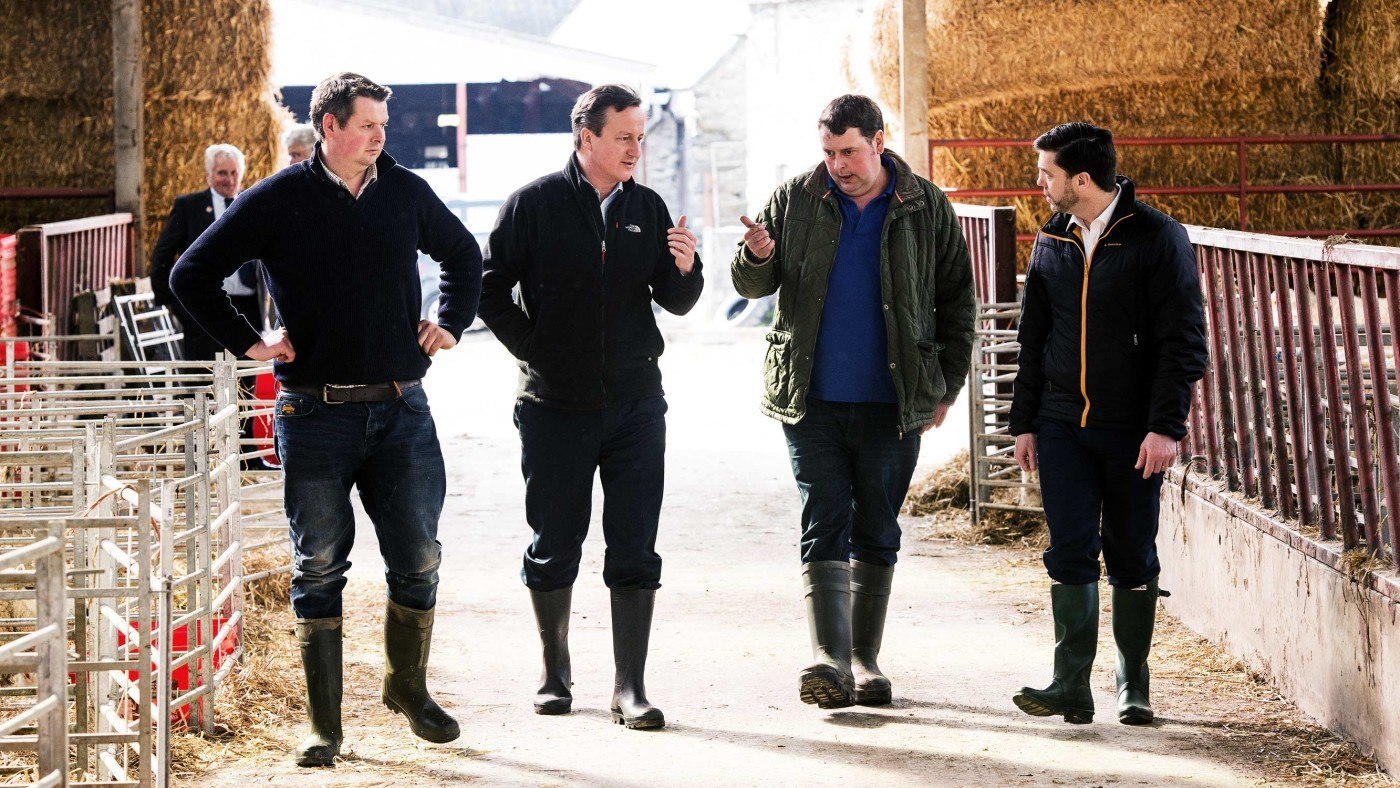The current tactic of the Remain camp in the referendum campaign appears to be to generate one major menace every 24 hours. Last Saturday David Cameron, launching the scare du jour, targeted the farming community with the threat it would lose £300m if Britain left the EU.
“If we left this single market and, as some suggest, relied on World Trade Organisation rules, the extra costs of exporting British beef would be £240m a year,” claimed the Prime Minister. “An extra £90m would be added to the cost of British lamb exports.” And that’s without factoring in the plague of locusts, rain of frogs and other divine punishments that would be inflicted on Britain for committing the blasphemy of voting for Brexit.
So, relying on WTO rules, in the view of the British Prime Minister, would offer no security. Yet the WTO has its enthusiastic cheerleaders, such as the man who, two years ago, hailed its Bali agreement as “historic” and said: “If just 100,000 small businesses either start exporting or spread to new markets over the next five years, this would generate an extra £30bn for the UK economy and create 100,000 new jobs.”
That keen fan of the 159-nation WTO was named David Cameron and was described as UK prime minister, but it surely cannot be the same individual. Can it? Just supposing Cameron were right and British farming would lose £300m by Brexit, that would hardly matter when, simultaneously, Britain would recover the £3bn with which it currently subsidises EU farmers – ten times more than would be needed to compensate our own agricultural industry. How convincing a scare is that?
On the eve of the referendum campaign it was received opinion that the Outers would make fools of themselves, fighting like stoats in a sack and descending into incoherence. They have not entirely disappointed; there has been an element of that, but the surprise casualty has been the credibility of the Remain thesis, its extravagant claims fast dissolving in the light of objective scrutiny.
The myth that 3 million jobs would be lost through Brexit was first confected by Nick Clegg, the master strategist whose political skill put eight Lib Dem MPs into Westminster at the last election. That myth was comprehensively trashed by the IEA last year, as well as by many other authoritative commentators. Jobs depend on trade, not membership of political groupings such as the EU.
Britain has an escalating trade deficit with the EU: in 2014 it reached £77bn in goods traded. It has amounted to £23bn over the past three months. Are we to believe EU-based companies would “punish” us by refusing to allow import-junkie Britons to buy cars, wine, beer and all the other goods worth more than £290bn a year to struggling EU economies?
Even our trade deficit-creating exports to Europe are inflated by the Rotterdam/Antwerp effect that credits them to the EU, when their eventual destination is non-EU, by around £24bn according to ONS studies.
Neutral outsiders are now routinely correcting the Remain camp’s alarmist fantasies. Last Saturday the chief executive of Norway’s sovereign wealth fund, at £584bn the biggest in the world, told Reuters: “We will continue to be a significant investor in the UK at about the same level as we are today and probably even increasing our investments there going forward no matter what happens.” British holdings already account for 10.2 per cent of the fund’s value.
The ultimate logic of Remain’s claims is that Britain is a failed state, incapable of surviving outside the EU. The opposite is the truth. The EU cannot survive and British withdrawal would accelerate its demise. There is now a discernible excitement outside the EU at the prospect of Britain returning to the world stage as a fully sovereign motor of enterprise. Our true security lies in leaving the EU, not in waiting within to be crushed by the debris when it collapses.


